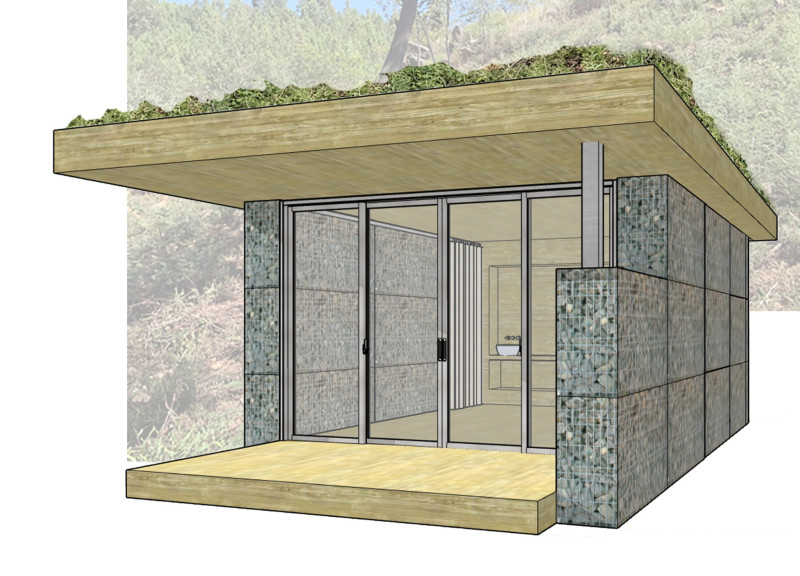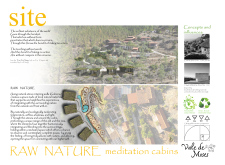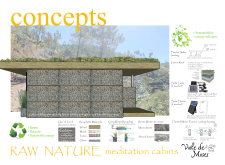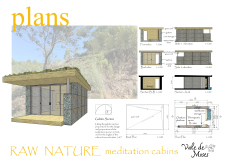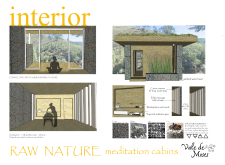5 key facts about this project
The "Raw Nature" meditation cabins project, located in Vale de Moses, Portugal, presents an architectural response to the growing need for spaces conducive to mindfulness and well-being. This project is designed to facilitate meditation and reflection, offering a harmonious relationship with the surrounding landscape. Through thoughtful integration of the site, usage of local materials, and sustainable practices, the cabins embody a contemporary interpretation of traditional Portuguese architecture.
The primary function of the meditation cabins is to provide a tranquil environment for individual retreat and relaxation. With large openings that connect the interiors to the natural exterior, these cabins encourage occupants to engage with the natural world, enhancing the overall meditative experience. By prioritizing wellness through architectural design, the project contributes to a broader discourse on the role of built environments in personal health and ecological responsibility.
Unique Design Approaches and Materials
The project distinguishes itself through its use of eco-friendly materials and innovative design strategies. The incorporation of gabion walls not only reinforces the structure but also ensures effective temperature regulation by utilizing thermal mass. Local stone enhances the connection to the region, while sustainably sourced wood, metal, fabric, and glass provide functional and aesthetic qualities.
The orientation of the cabins is another noteworthy design approach, strategically positioned to capture views of the surrounding landscape and maximize natural light. This thoughtful layout accentuates the dialogue between indoor and outdoor spaces, allowing natural elements like light and air to play significant roles in the user experience. Moreover, green roofs support biodiversity and optimize thermal performance, demonstrating the integration of ecological principles into the design.
Interior Environment and User Experience
Inside, the cabins are characterized by their flexibility and adaptability. Designed as multi-functional spaces, they can accommodate various activities, including yoga, meditation, and therapeutic practices. The use of natural textiles for finishes and extensive glazing further enhances the serene environment, promoting a sense of warmth and openness.
The cabins are not just structures but embodiments of a philosophy that emphasizes simplicity, sustainability, and respect for nature. By utilizing local resources and minimizing impact on the environment, the project illustrates progressive architectural ideas aimed at improving personal and collective well-being.
To explore the architectural plans, architectural sections, and architectural designs in greater detail, readers are encouraged to review the project presentation, which offers a comprehensive insight into the unique attributes and operational aspects of the "Raw Nature" meditation cabins.


